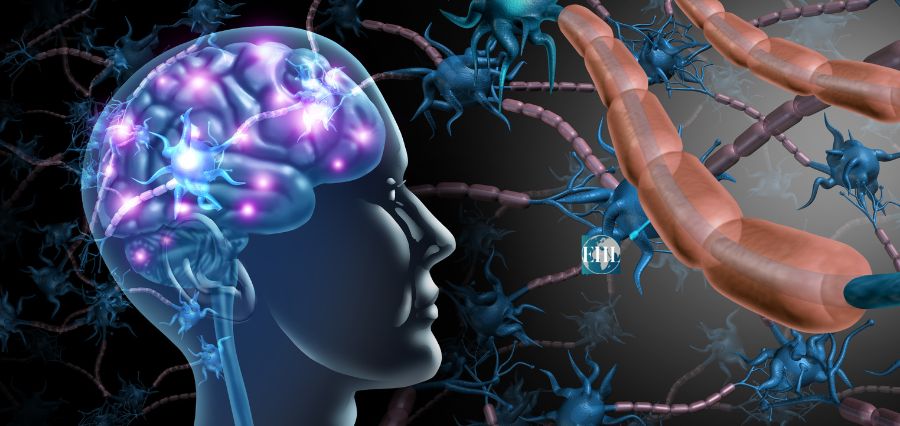Brain Fog is not distractibility or lack of memory. It’s a mindset that confounds heads you, not you, and flubbing. It’s struggling to remember the word, interrupting you in your head, or being able to think only in slow motion like you. Brain fog really pilfer day-to-day functioning, mood, and sense of well-being.
With our computer and technology era, brain fog is epidemic.
It’s not inherently a good thing but a symptom of all types of disease, from insomnia and anxiety to hunger, hormonal imbalance, and chronic illness. The good news? You can defeat brain fog and be thinking head once more.
Finding the Real Meaning of Brain Fog
Fogging of the brain” is a confusion syndrome of symptoms of forgetfulness symptoms of stuporous mind and mental fatigue. It has also been called “not quite themselves,” losing one’s head, or “off.” It can interfere with work, social functioning, and even daily day-to-day decision-making.
While not an actual disease itself, brain fog is just as real—and infuriating—to its victims day after day of their lives. It’s also frequently brought on or worsened by other diseases such as depression, anxiety, autoimmune illness, chronic fatigue syndrome, and even long COVID. The solution to pushing the fog away and maintaining your brain in peak condition is determining what is causing it.
Why Brain Fog occurs? Number One Reason for Mental Fuzziness
Learn why brain fog occurs so you can perform better. Most of the most common reasons are mentioned below:
1. Poor and Inadequate Sleep
Lack of sleep is the largest reason for brain fog. If you don’t sleep, your brain won’t process, won’t remember, nor stay focused.
2. Stress and Chronic Anxiety
The brain is flooded with cortisol, which, when one is sustaining record levels in the long term, leads to forgetfulness and impaired thinking. Those in persistent “fight or flight” inevitably have a constantly “foggy brain.”
3. Nutritionally Deficient Diet
Your brain is happiest when it’s well-nourished. Saturated food, processed foods, and saturated high-sugar foods mess around with neurotransmitter chemistry and lead to brain fog. Compromised availability of nutrients of B vitamins, omega-3 fatty acids, and magnesium are thrown into the mix.
4. Hormonal Balance
Hormonal fluctuations—estrogen, progesterone, and thyroid hormone—are to blame for confusion of the mind at the same time. Brain fog is the worst of all enemies of pregnant and menopausal women because of hormonal imbalance.
5. Disease Caused by Drug and Medicine
Autoimmune disease like lupus, MS, and fibromyalgia and constant headaches and infections cause inflammation in the brain after some time, the reason for brain fog. Some medications like antihistamines, sedatives, and antidepressants are also responsible.
Symptoms of Brain Fog You Won’t and Can’t Ignore
Recently ill and thinking of inviting brain-fog to your brain, remember the following symptoms:
- Difficulty with concentration or maintaining concentration
- Forgetting appointments, dates, and names
- Brain tapping even after resting
- Difficulty speaking and finding the correct words
Slowed-down problem solving and decision making
They come and go on a day-by-day basis or as a chronic state most often in anticipation of stress or exhaustion.
Natural Methods for Transcending the Brain Fog and Being Smarter-Headed
While brain fog may bog down your existence, much of lifestyle adjustment will actually maximize energy and alertness. They’re evidence-based strategies to be smarter:
1. Better Sleep Habits
Experiment with 7–9 hours of better nighttime sleep. Establish regular sleep time, limit the use of screen in the evening, and implement a calming prebed routine. A rested brain is an active brain.
2. Eat a Brain-Boosting Diet
Nourish your brain with nutrient-rich unprocessed foods that offer brain fuel. Eat leafy greens, berries, omega-3 fatty fish, nuts, and seeds. Avoid sugar, caffeine, and alcohol that cause brain fog.
3. Exercise Stress Effectively
Incorporate stress-reduction activities in your daily routines, like playing with mindfulness exercises, yoga, deep breathing, or journaling. Take a five-minute break each day and it might soothe your nervous system and maximize brain fog.
4. Body Exercise Every Day
Physical exercise sends more blood to your brain and loads it up with more endorphins and BDNF, which have been assigned to accelerate thinking and remembering. Take a walk, stretch, or exercise and restart your brain.
5. Rehydrate and Detox
Mild dehydration pinches mental clarity. Stay water-full during the day and wash away environmental toxins like mold, pollution, and heavy metals that dry out and disperse brain function.
When to Treat Chronic Brain Fog
If your symptoms don’t go away after lifestyle changes, see a physician. Brain fog may be the initial manifestation of something brewing such as hypothyroidism, diabetes, chronic fatigue syndrome, or neurologic disease. Medical diagnosis and assessment will determine the etiology and how to fix it.
Final Thoughts: Brain Fog Ain’t Necessary
The secret to eliminating brain fog is that it is a symptom, not a diagnosis. Discover why it is happening and make some changes so change can be made for good, you can eliminate the woolly head and be living in a world of concentration, clarity, and energy.
Get moving now—feed your body, burn off stress, sleep, and exercise every day. Your mind will thank you, and the haze will start to clear.









